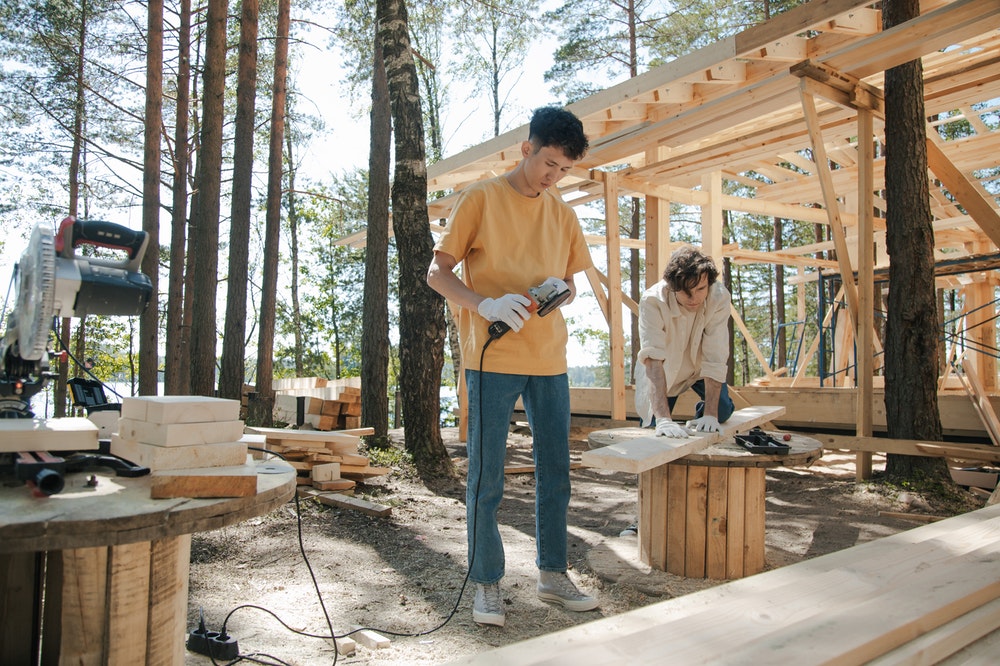It can be the hardest decision you and your family have to make during a hurricane, but sometimes it’s for the best: to evacuate your home during a hurricane and seek shelter elsewhere. When a particularly bad hurricane rolls through Florida and poses grave danger to your neighborhood, it can be wise to fortify your home as best as possible before gathering up your family to leave and find a safer place to wait out the storm.
But if you’re not sure when the right time to evacuate may be, how to go about getting your family into a local shelter, or what your options are when you arrive there, then you may instead feel like you have no options at all. While this is often not the case, it’s important to remember that even shelters have their limitations, and you should adjust your expectations accordingly and remain steadfast about doing as much preparation beforehand as you can.
How to Decide if You Should Evacuate
Though it may be surprising to hear, emergency hurricane shelter programs in the state of Florida actually recommend making a hurricane evacuation center or shelter the last resort to be used by you and your family in the event of a hurricane. Only when it’s been determined that your home is not safe to remain in and you’ve exhausted any viable options to shelter in place with friends or family, should you consider retreating to a nearby shelter.
This is because shelters are subject to the effects of hurricanes just like any other home or commercial building. Often located on school campuses, in office buildings, or even tents and other temporary facilities, they may have to close or deny new residents at a moment’s notice if conditions become too dangerous. They are also liable to run out of supplies and services should too many people take advantage of them when it’s not entirely necessary to do so.
That said, you might be wondering when it does become necessary for you and your family to seek out help from a hurricane shelter. And the answer is that it really does come down to your own parameters and decisions, but there are ways to be wise about them. First, do your best to keep in tune with what your local authorities are recommending. Whether it’s via television, internet, or radio, if conditions become threatening enough, authorities will issue an order to evacuate from certain areas. You should never ignore one of those orders—no matter how sturdy and prepared you think your home may be. Wind and water can do a lot of dangerous damage.
If trustworthy authorities are confirming that it’s still safe to remain in your home (assuming you’ve prepared it and your family as you should), then it should largely be okay to stay put. Often times, orders to evacuate may not come through if driving conditions make attempting to reach a shelter more dangerous than remaining at home. However, if your home becomes damaged in the hurricane and creates a more dangerous situation inside your home than outside, then it’s likely wise to evacuate at that point—even if an official order has not come through.
What to Expect at a Hurricane Shelter
If you reach the point where it becomes necessary to evacuate your home, hopefully you will have already prepared for that moment. Preparation includes knowing which shelter is located nearest to you and can take you and your family (and possibly any pets) in. Your car should already be filled with gas so you can make a quick and safe trip there. And before leaving your home, you should grab your emergency supply kit and any other necessary belongings, like cell phones, chargers, medication, and important documents.
Also be sure to unplug your appliances, turn off gas, electricity, and water before you leave. Finally, on your way to your local shelter, always follow the routes recommended by emergency workers, as other routes may be blocked or flooded, leaving you in a more dangerous situation than when you started.
When you arrive at the shelter, assuming it hasn’t become overcrowded beyond its own limits of preparation, you should expect the facility to be stocked with enough basic necessities for survival. This most often includes food, water, basic first aid, a warm, dry place to sleep—and that’s it. It often surprises people to learn that shelters aren’t equipped with an overstock of tasty snacks, or an abundance of items that will help to keep people entertained while they wait. They often can’t even provide medical care beyond what’s kept in basic first aid kits.
The reality is, most shelters are crowded, noisy, short-staffed, have very little privacy, and are downright boring. Don’t expect the same levels of comfort and convenience that you might have at your home or in a hotel. You and your family are only there to have a safe place to stay until the worst of the hurricane passes, and so shouldn’t rely on the shelter staff to provide creature comforts and entertainment. Regardless, we should always always be thankful of the time and effort they are still donating to their community.
Your Options if the Hurricane Shelter Isn’t Safe
Unfortunately, hurricane shelters aren’t magical locations that are guaranteed to be safe havens no matter the severity of the hurricane. Even if they are as prepared and fortified as they are able to be, there’s still a chance that a particularly bad or unpredictable hurricane can turn a shelter into a less-than-safe location for people to remain. Or, as more often happens, these shelters get so overcrowded that they’re forced to start turning away new patrons.
For those reasons, it’s extremely important to continue monitoring local media to the best of your ability so that you can stay up-to-date on current shelter openings, locations, and availability should you need to look elsewhere. If it truly isn’t safe to return to your home, but the shelter you’re trying to join can’t accept you, then you may have no choice but to put your family back in the car and try the next location. And you should only return to your home once the authorities have declared it’s safe for you to do so.
If you aren’t sure where to turn during a hurricane, contact your local Florida emergency management office for guidance. You can ask them what kinds of accommodations might be offered in your area, as well as more specific questions about those accommodations, like if they allow pets. But remember, this is all information that’s extremely important to gather before a hurricane hits. They may not have the ability or resources to answer your calls and questions in the midst of a bad storm. Your hurricane preparations should always consist of putting together a list of important names, phone numbers, and addresses to take with you should you need to leave your home.
The Whisler Law Firm is made up of team members who have lived in Florida for a long time and experiencing many hurricanes. We take hurricane preparedness seriously for ourselves and our communities across Florida, which is why we offer so many free preparedness resources on our website. And should you find yourself on the other side of particularly bad hurricane, working with a home insurance company that’s only making the process of getting the repairs you need more difficult, call us at 833-529-5677 or fill out our online form to request a free consultation. We’ll see how we can help.



